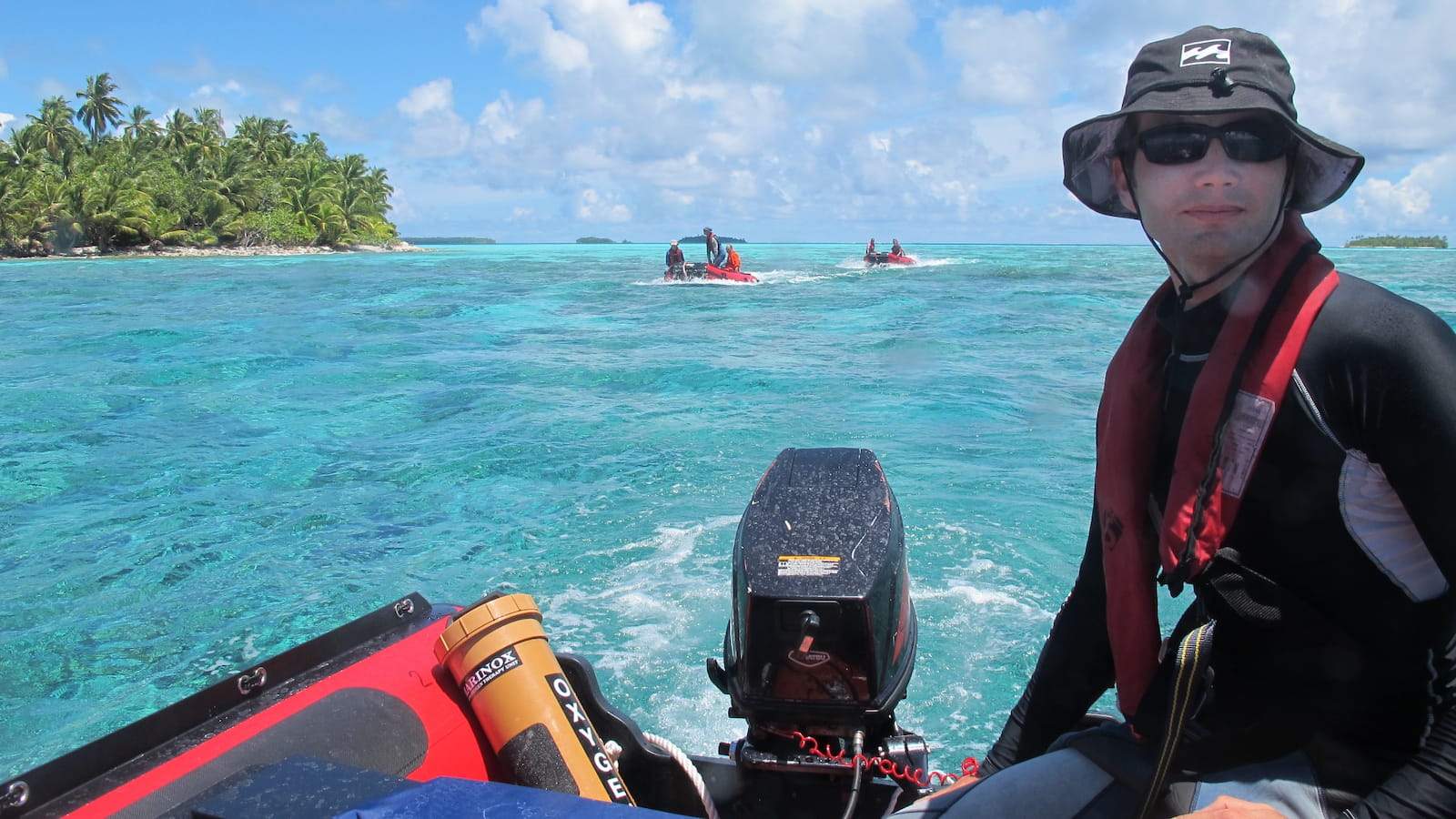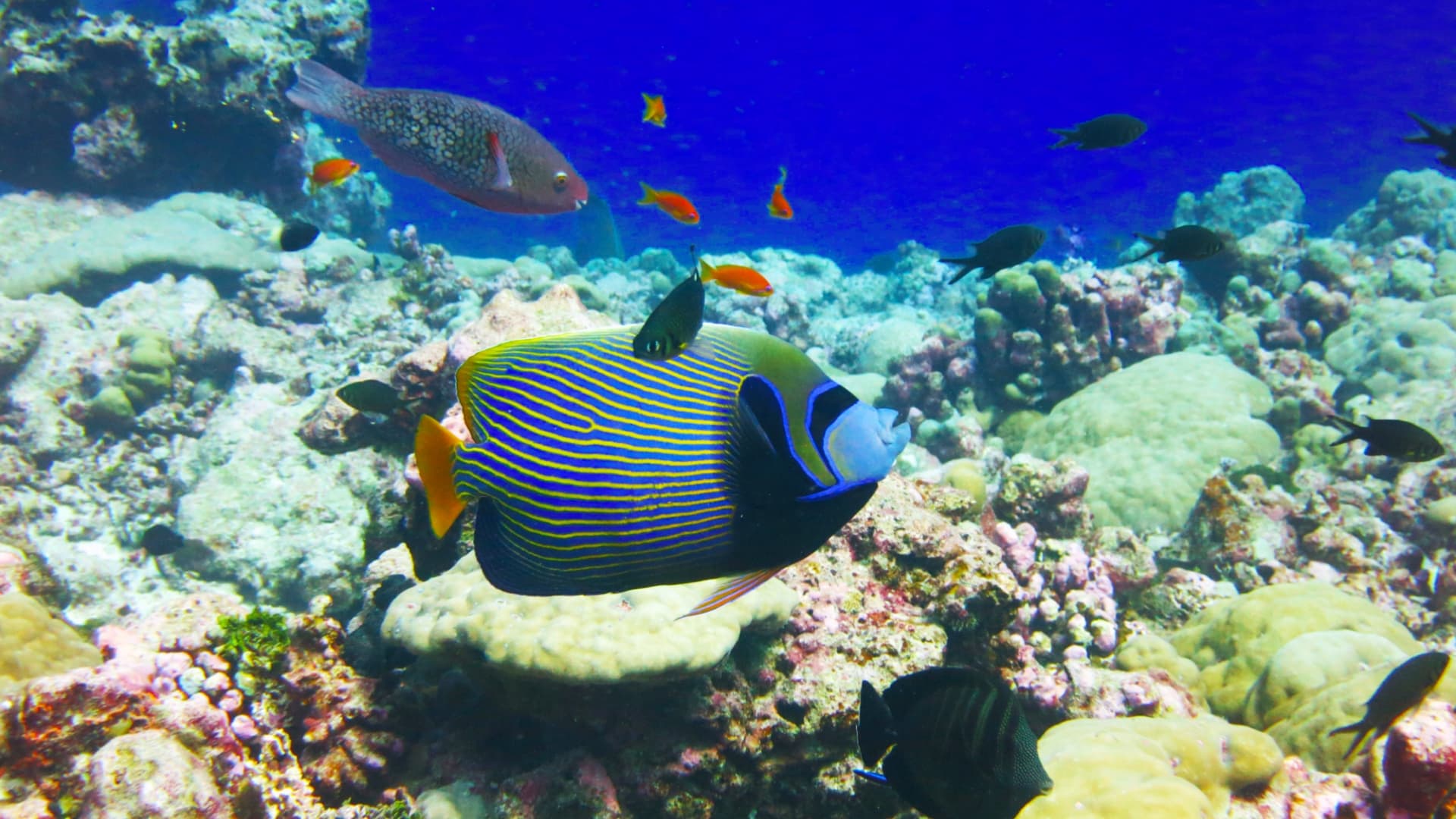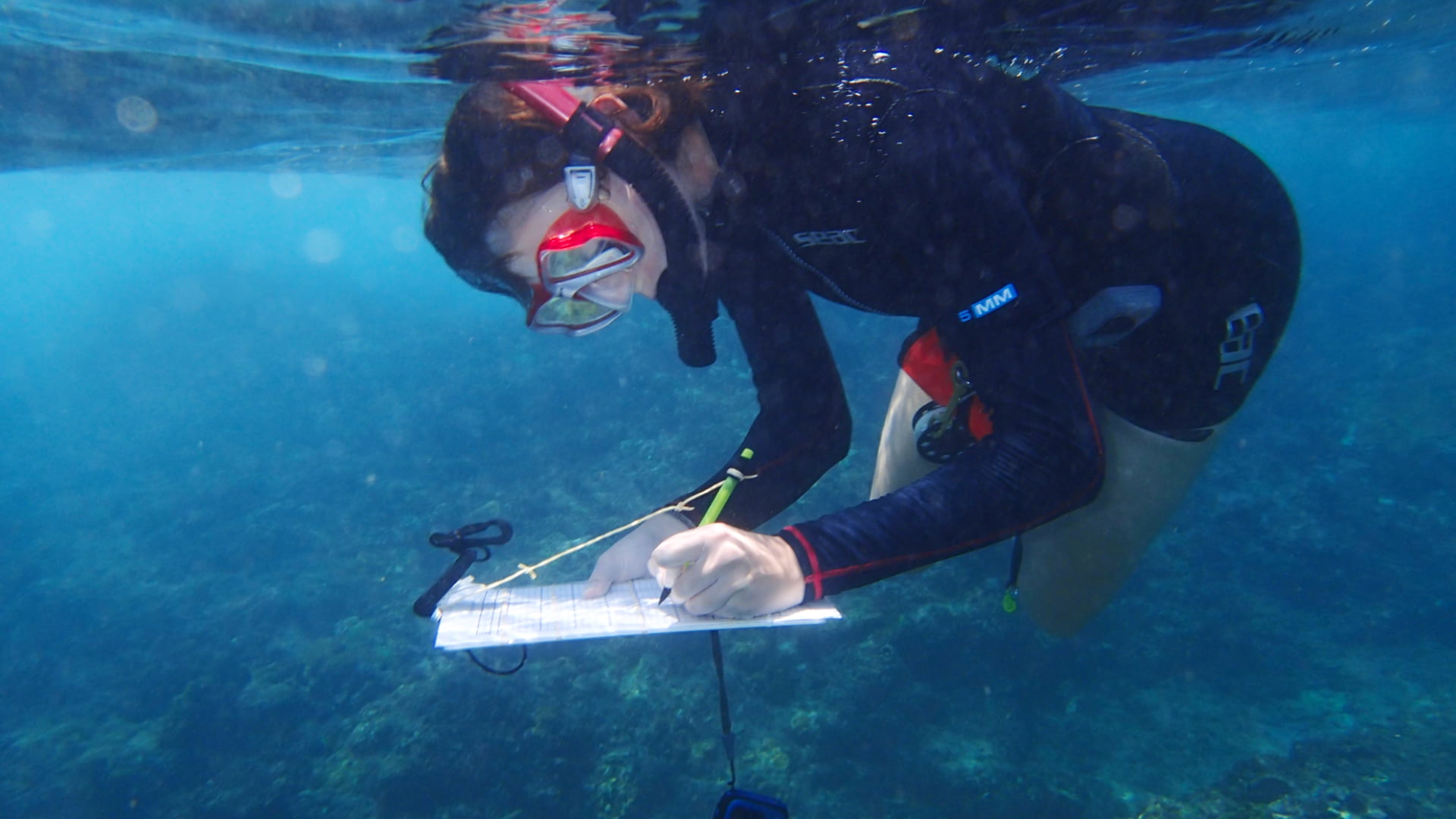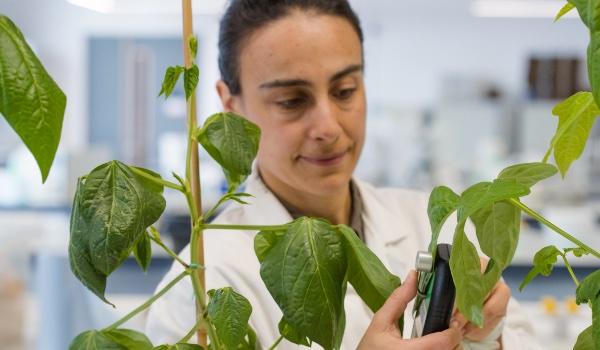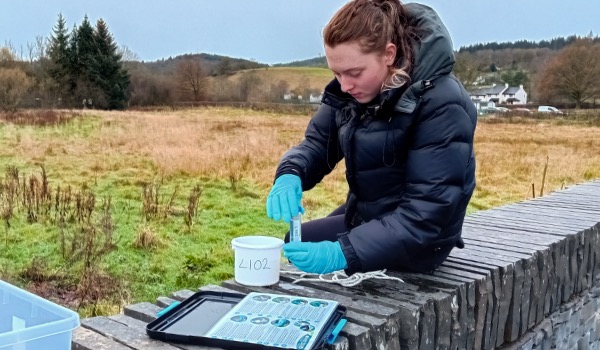Discovering potential solutions
Lancaster’s experts are working to better understand this rapidly changing socio-ecological system, discover potential solutions for its challenges, and ensure the long-term future of reef-dependent societies and ecosystems.
Their work ranges from examining the broad processes that underlie the ecology of coral reefs to researching their fair management, enabling them to support diverse livelihoods and cultures. They also focus on how reefs respond to climate change, fishing and nutrient changes to build a picture of how they could look in the future.
The team’s work has captured the attention of international media, from Life Scientific on BBC Radio 4 to BBC Breakfast and in publications from the Washington Post and New Scientist to CNN and Le Monde.
Through working in partnership with key communities, other universities and research institutes around the globe, the team has built a reputation for excellence both in terms of their research output and their focus on clear, compelling communication.
Some of their most recent work has resulted in a vital nutritional database about fish species being made freely available to people worldwide as part of efforts to tackle global malnutrition.
Led by Lancaster’s Professor Christina Hicks, this work addresses the fact that despite fish being an essential component in the diet of more than 3 billion people around the world, and an essential source of micronutrients for over a billion people in low-income countries, many of these populations lose their very nutritious fish through exports and foreign fishing. This research aims to tackle injustices and inequalities around access to seafood's nutritional and financial benefits.



